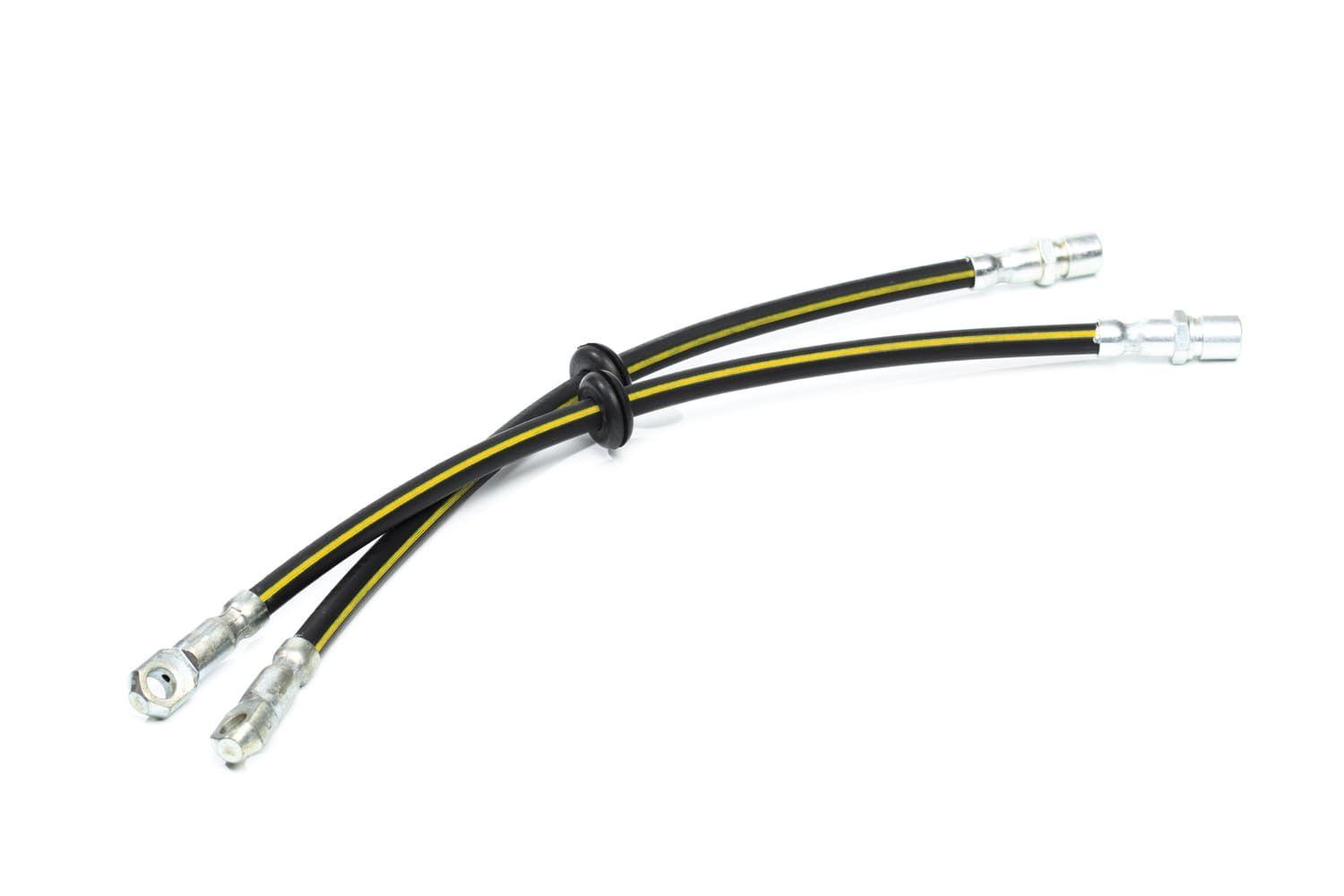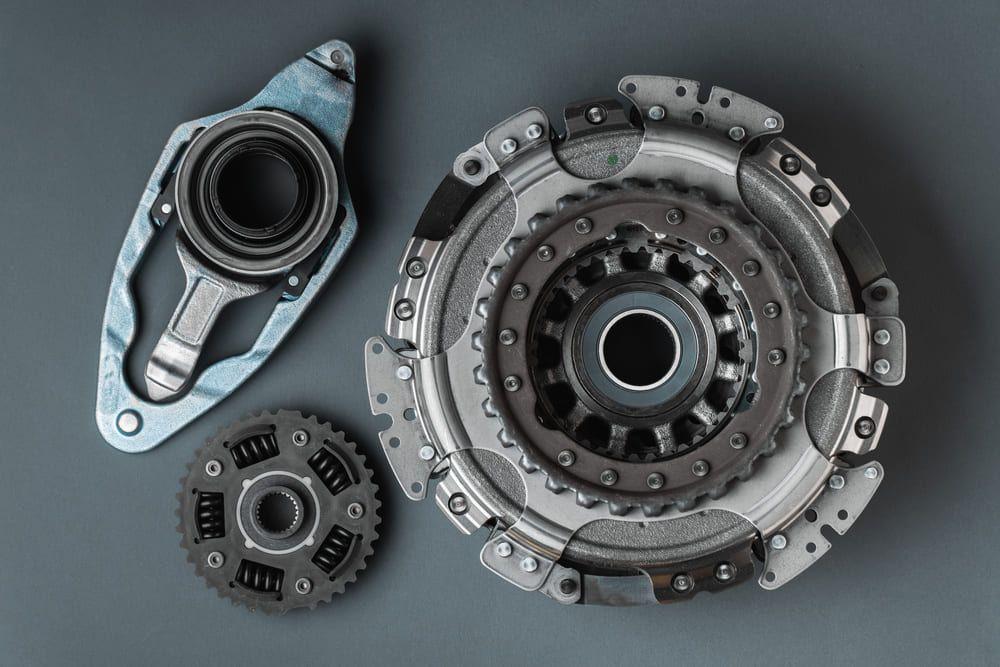
How Much Does a Brake Pipe Replacement Cost?
Brake hoses are vital for your vehicle's braking system, transferring fluid from the master cylinder to the callipers, allowing your car to stop. Maintaining them is crucial, as worn hoses can reduce stopping power.
Need a replacement? Discover the average brake pipe replacement cost in the UK and read some common FAQs in Bumper’s guide.
Brake pipe replacement cost in the UK
The averagebrake pipe replacement cost in the UK £75 to £180.
The cost can vary depending on factors like your vehicle’s make and model, location, and labour rates.
The estimate above covers both parts and labour, but extra charges may apply if other components in the braking system need repair or replacement.
Worried about the costs? With Bumper you could benefit from 0% interest car repair financing and pay for car repairs in instalments in easy-to-manage monthly payments.
Spread the cost, interest-free
Take the backfire out of fixing or replacing your exhaust. Pay later with Bumper.
The average brake pipe replacement cost by car make
Here's a rough comparison of brake hose replacement costs for popular car makers in the UK.
Keep in mind though that these figures are approximate and may vary based on factors mentioned earlier:
Car Make | Average Cost |
|---|---|
BMW | £100 to £140 |
Ford | £80 to £110 |
Honda | £80 to £120 |
Kia | £190 to £210 |
Nissan | £185 to £210 |
Toyota | £70 to £110 |
Volkswagen | £90 to £130 |
Brake pipe replacement costs by location
Your brake hose replacement cost depends on several factors, one of which is location. Below, we’ve included rough estimates for major UK areas.
UK Area | Average Cost |
|---|---|
Birmingham | £180 |
Glasgow | £180 |
London | £190 |
Newcastle | £215 |
Sheffield | £170 |
What is a brake hose/pipe?
Brake hoses are flexible tubes that connect the brake callipers to the metal brake lines from the master cylinder.
They handle the pressure and heat from braking while allowing the suspension and brakes to move.
When you press the brake pedal, brake fluid flows through the hoses to the callipers, which press the brake pads against the rotors to slow down your vehicle.

What's the difference between a brake hose and brake lines?
The main difference between a brake hose and a brake line is their flexibility and where they're used in the braking system.
Both serve similar functions, there are some key differences between them:
Materials: Brake hoses are typically made of reinforced rubber or braided stainless steel, while brake lines are made of rigid metal (usually steel or copper-nickel alloy).
Flexibility: Brake hoses are designed to be flexible to accommodate movement between different parts of the braking system, whereas brake lines are rigid.
Placement: Brake hoses connect the more flexible parts of the braking system (callipers) to the rigid metal brake lines that run from the master cylinder.
Different types of brake hoses
There are two common types of brake hoses (pipes) used in vehicles: rubber brake hoses and stainless steel braided brake hoses.
Rubber brake hoses
Rubber brake hoses are a common, affordable choice for many UK drivers, as they're often factory-installed.
However, they can wear down over time due to heat, moisture, and chemicals, leading to cracks or splits that compromise the braking system.
Regular inspections and timely replacements are essential. Despite potential wear, rubber hoses remain a reliable option for those prioritising cost and performance, with maintenance being key to their longevity.
Stainless steel brake hoses
Stainless steel braided brake hoses are a popular upgrade for car enthusiasts due to their superior performance and durability.
Though pricier than rubber or plastic hoses, they resist swelling under pressure, providing a more consistent brake feel.
They're also more durable, less prone to cracking or wear, and ensure long-term reliability.
While the initial cost is higher, the lasting benefits make them a worthwhile investment for those seeking better braking performance.
Signs your brake hose needs replacing
Unsure if you need a replacement? Some common symptoms of a failing brake hose include:
Reduced brake performance or spongy brake pedal feel.
Brake fluid leaks near the hose connections or callipers.
Visible cracks, abrasions, or bulging on the brake hoses.
If you notice any of these signs, it's essential to inspect your brake hoses for damage and consider replacing them if necessary.
Delaying replacement can lead to further damage and compromise your vehicle's braking ability.
Can you drive with a broken brake hose?
No. Driving with a damaged or broken brake hose is incredibly dangerous and puts you and other road users at risk.
If you suspect brake hose damage, it's best to play it safe and get a professional inspection right away.
Brakes are crucial for safety, and brake hoses transfer hydraulic pressure from the master cylinder to the callipers or wheel cylinders. A damaged hose can reduce stopping power and even lead to brake failure.
Watch for warning signs like soft brakes, excessive pedal travel, fluid leaks, or strange noises.
Ignoring these issues can lead to accidents and costly repairs, so maintaining brake hoses should always be a priority for drivers.
Are corroded brake pipes an MOT failure?
Yes, corroded brake pipes can result in MOT failure. They pose a significant risk to your vehicle's braking efficiency and safety on the road.
To maintain your brake pipes and avoid MOT failure:
Inspect your brake pipes regularly for signs of corrosion, leaks, or damage.
Clean any debris or dirt buildup around the brake pipes.
Consider applying a corrosion inhibitor to protect the metal surfaces.
How long does a brake hose last?
Generally, brake hose pipes can last between 8 to 15 years before needing replacement.
The average lifespan of brake pipes varies depending on factors such as driving conditions, exposure to moisture and salt, and maintenance habits.
Is it worth replacing brake pipes?
Replacing your brake pipes offers significant benefits beyond improved braking performance.
New pipes reduce the risk of brake failure due to corrosion or damage, keeping you safe and helping you avoid costly repairs.
Investing in new brake pipes also gives you peace of mind, especially if you rely on your car for work or family. Proactively replacing worn-out pipes ensures reliable performance and safety, so don’t hesitate to consult a trusted garage.

Should brake hoses be replaced in pairs?
No, you don’t have to replace brake hoses in pairs. However, it’s good to change them together as they’ve probably worn at the same speed. Your mechanic will likely advise this after a routine inspection.
How long do brake pipe replacements take?
You can expect your brake pipe replacement to take around an hour and a half.
This time can be slightly longer or shorter, depending on whether any other issues are found in the process and how long it takes to dismantle the vehicle.
What happens in a brake pipe replacement?
Wondering why a brake pipe replacement takes 1.5 hours? Here’s what goes on while your car is being serviced.
In the replacement, a mechanic will:
Inspect the brake system
Established what needs to be replaced
Replace the old or damaged brake parts
Renew the brake fluid
Bleed the brake system
Inspect the new parts and check the car is safe to drive
The bottom lime
Hopefully, we've given you some insight on common brake pipe replacement costs. There's no one cost for every car, but you can start to gauge how much your replacement will cost based on your make and location.
Remember to consult an expert at the first sign of brake pipe problems! Maintaining your vehicle is critical to keeping yourself and other drivers safe.
Split The Cost With Bumper
Bumper knows a large repair bill on your car is the last thing you want to spend your money on, but essential parts such as shocks are crucial for you and your family’s safety.
Look after your car and your bank balance by splitting the cost or repairs into monthly instalments, interest-free
Join the Bumper community and get access to the best care for you and your car. Choose a dependable dealership and split your car repair bill into monthly chunks.
Spread the cost, interest-free
Take the backfire out of fixing or replacing your exhaust. Pay later with Bumper.

Split your car repair cost over monthly repayments interest-free.

Split the cost of your next repair
Other related articles from our blog

Advice
4 min read
How much does a sump oil leak repair cost?
A sump oil leak repair cost can sit anywhere from £50 to over £700. See the average prices per repair and see the next steps online now with Bumper.

Advice
4 min read
How much does a Tesla scratch repair cost?
Tesla scratch repair costs £80 to £1,200, depending on how deep the scratches are and which part of the vehicle is damaged. Find out more online now.

Advice
4 min read
How Much Does a DSG Gearbox Repair Cost?
Due to their complexity, DSG gearbox repairs typically cost between £200 and £2,500. Find out more about DSG gearbox repairs and replacements here.